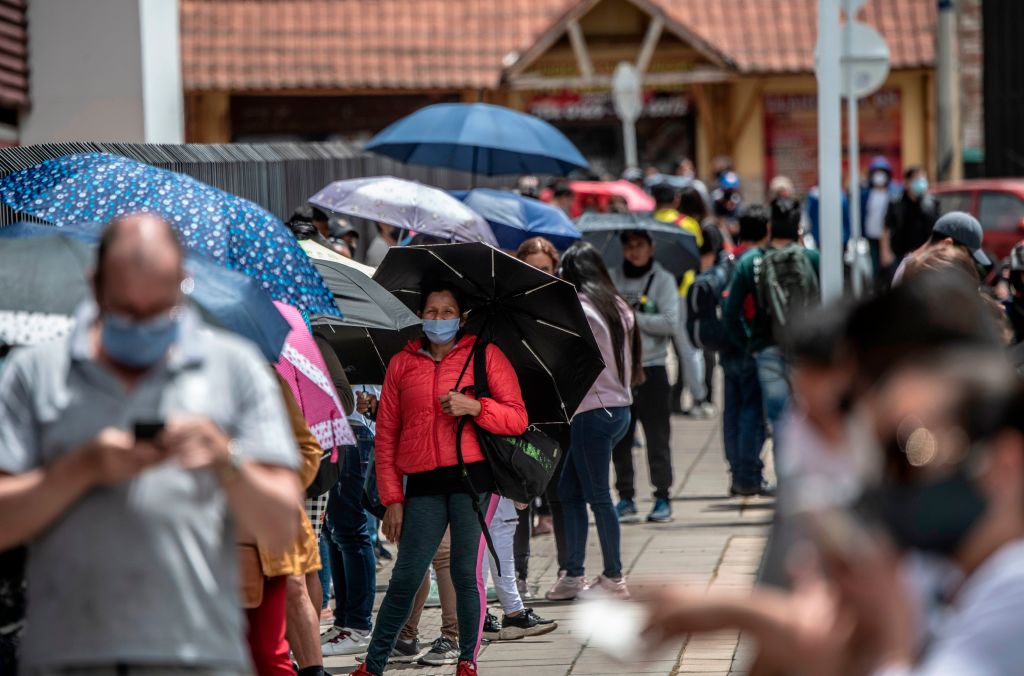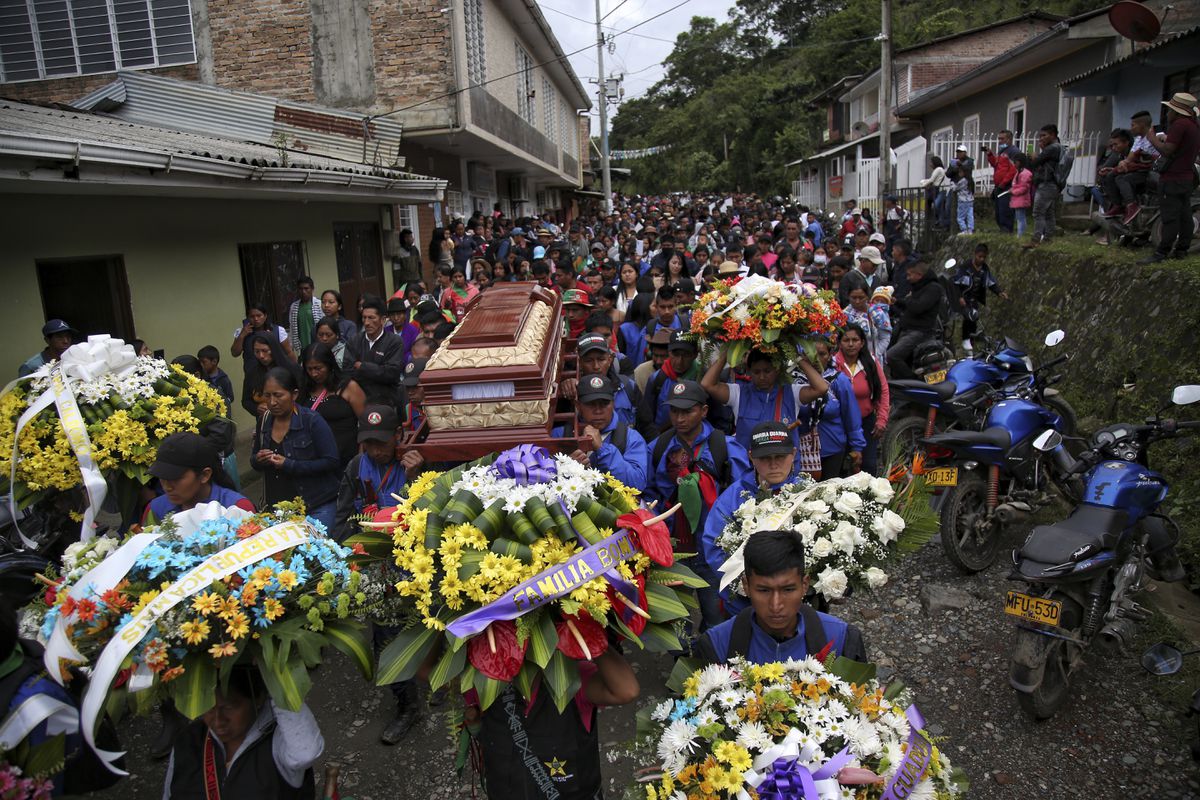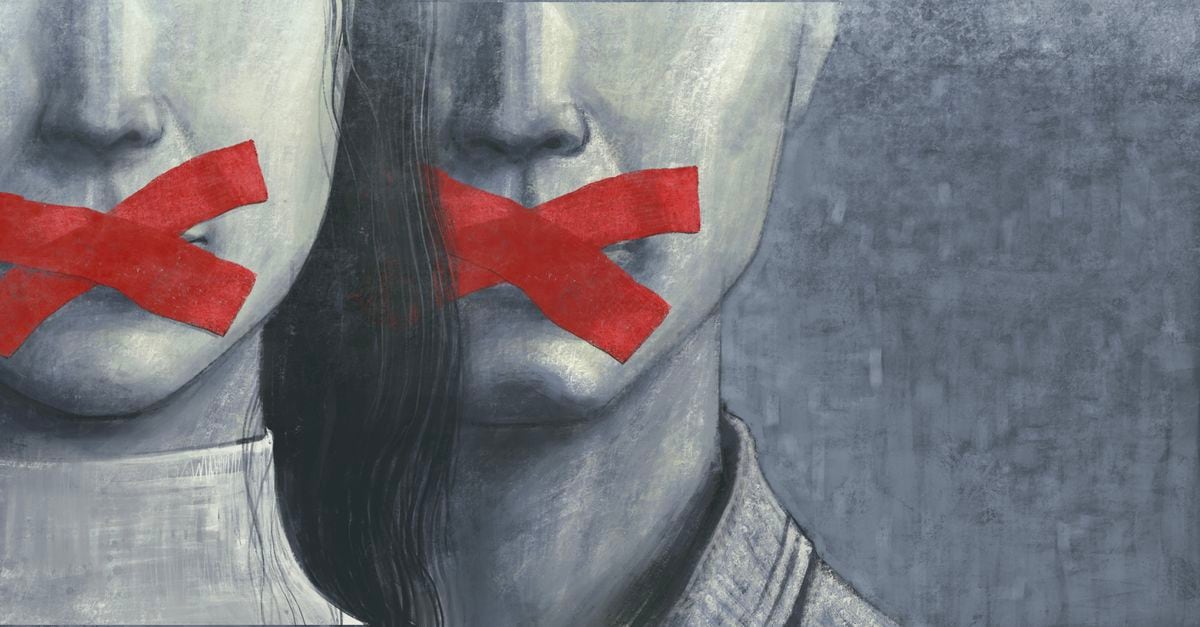16 relatives in Colombia infected by covid-19 3:07
(CNN Spanish) - Colombia is among the 10 countries with the most reported cases of coronavirus in the world, according to figures from mid-August.
Since the first case, registered on March 6, 2020, the speed of contagion has skyrocketed, especially in the last two months, jumping from almost 40,000 in June to more than 500,000 cases in mid-August. This, despite measures to curb the spread of the virus, both from the national and local governments.
“One as a doctor has to recommend what is the best or the safest, and that is isolation. But one understands the social and economic part in which people have to go out to produce, they have to go out to get their daily livelihood, ”Dr. Roberto Baquero, president of the Colombian College of Physicians, told CNN.
With more than half a million cases and at the top of the pandemic, the Government has begun to reactivate flights on national routes in some cities and the operation of drive-ins.
Colombia, like many countries, weighs isolation measures to protect the population and the impact they have on the economy of a developing nation. As the cases continue to rise, the question that remains is whether the government's strategy to curb the contagion has failed.
Curb mortality
"The objective of our strategy is not necessarily to reduce contagion," Colombian Health Minister Fernando Ruiz told CNN from Bogotá.
“Our goal is to reduce mortality from covid-19, reduce fatality, and in that we have an indicator that is already at 3.2%, which has been decreasing and that indicates that we have been successful in maintaining a low mortality rate for people. that unfortunately they have to go to intensive care for covid ”, explained Ruiz.
According to the minister, the main focus allowed them to prepare all the hospital capacity to serve the population at risk. "In Colombia, a person has not died due to lack of beds," he said.
Colombia has reported almost 16,000 deaths until August 20, which represents 3.2% of fatality, as indicated by Ruiz, and 31.46 deaths per 100,000 inhabitants, according to figures from Johns Hopkins University. The fatality from covid-19 cases in Colombia is below countries such as Mexico (10.9%), Ecuador (5.9%), Peru (4.9%), Bolivia (4%) and equal to that of Brazil (3.2%), according to JHU.
Another reason why there has been an increase in the numbers of covid-19 in recent months is, according to the minister, a greater number of tests carried out, which at the beginning of the pandemic, in March, were 600 per day, in June, 2,000. According to the National Institute of Health (INS), Colombia today has the capacity for just over 54,000 daily tests and 119 covid-19 diagnostic laboratories.
https://www.facebook.com/CNNee/videos/3077323012335842/
No mandatory quarantine, but in "preventive isolation"
For more than five months, Colombians have seen how their daily lives have changed due to the coronavirus, with parks, discos, and cinemas closed, and the prohibition of mass gatherings to avoid contagion.
At the end of March, when the coronavirus was advancing by leaps and bounds towards Latin America, President Iván Duque decreed a mandatory quarantine throughout the country, an order that came after a drill promoted by some local governments such as Bogotá.
This mandatory confinement lasted a few weeks, but has since been replaced by an order of "preventive isolation", as Duque calls it, which has been gradually extended. Currently, the isolation order is in effect until August 31.
"In Colombia there is no mandatory quarantine," explains Minister Fernando Ruiz. "In Colombia we had a mandatory quarantine that lasted something like 35 days and from there we had a quarantine that has been carried out in de-escalation and we never had a strict quarantine."
During the quarantine, most Colombians had to stay at home (with the exception of medical personnel and essential workers), but in the preventive isolation stage the economy has been opening up to 80% of its operation, according to Ruiz, and Isolation has been maintained focused on those over 70 years of age, school-age minors, and those who can work from home. Also, from people who have the virus and their close contacts.
Ruiz says that the initial quarantine managed to lower the reproductive rate of the coronavirus, going from 2.4 infections per infected to the current 1.12.
And in an attempt to partially reopen the economy, the national government decreed in June 43 activities exempted from isolation, with which the limits of circulation are blurred.
As of August, the Bogotá Mayor's Office ordered a series of mandatory quarantine orders by locality, in 15-day cycles, in order to reduce the rate of infections and not completely shut down the city's economy, according to Mayor Claudia Lopez. Bogotá is the focus of the pandemic with more than 171,000 cases until August 18.
The College of Doctors of Bogotá asked President Duque in July to impose a strict confinement in the Colombian capital where there are more cases of coronavirus, and in the most affected areas of the country after a report of record cases in both cases of covid- 19 as in deaths from disease.
Duque has resisted calls to reinstate the lockdowns after they were partially lifted in early June.
"People who do not have a job and economic means have to go out and look for their jobs and that leads to (increase the number of) infections, despite all the measures that the government has implemented," Carlos Matiz, president, told CNN of the Colombian Association of Pulmonology and Thorax Surgery.
And with the quarantines located in Bogotá, many complain about the effects on local commerce.
Informal work as a factor
The increase in infections is also due to the high rate of labor informality in Colombia. There, 46.2% of the workers in 23 cities are informal workers, according to the most recent DANE report. And the need for daily subsistence is what has increased the number of infections, according to Baquero, of the Colombian College of Physicians.
“Almost half of the economic part is informal. And this, after almost two months of confinement, makes money run out and people are hungry and have to go out to find how to get their daily livelihood, "said Baquero. "Then there also began a little the opening by the Government and that is where the number of infections begins to increase."
A woman holds a sign during a protest against the mandatory sectorized quarantine measures in Bogotá imposed by Mayor Claudia López on August 18, 2020. (Credit: JUAN BARRETO / AFP via Getty Images)
The day without VAT
In order to push the economic reactivation, President Iván Duque established three days without VAT in the country. Although this measure was established before the coronavirus arrived, Duque programmed them in the middle of the pandemic despite criticism against the measure due to the possibility of an increase in infections.
One of these came from the mayor of Bogotá, who blamed the government for causing crowds in places "without good ventilation" that are those with the highest risk of contagion.
“Raise sales and lower lives? What nonsense! They don't take care and they do harm! ”He said on Twitter.
The National Government that has not complied with the delivery of a single ICU fan today causes greater agglomeration in Bogotá.
Closed places without good ventilation are those with the highest risk of contagion.
Raise sales and lower lives?
What nonsense! They do not care and they do harm! https://t.co/FCfbFwvdvs
- Claudia López 👍 (@ClaudiaLopez) June 19, 2020
The first day without VAT, on June 19, left a scene of chaos in department stores, of thousands of people buying home appliances without taxes, in the middle of the pandemic.
As of June 19, the country was reporting just over 63,000 cases. Two weeks later, on July 3, the cases had increased to almost 110,000, and a month after the first day without VAT, on July 19, the country was close to 200,000 cases of covid-19.
“The VAT-free day was a dreadful thing. The number of people who went out without respecting safety issues or isolation issues to seek discounts at department stores. And this of course led to an increase in the number of infections, "said the president of the Colombian College of Physicians.
The president denied that this had been a determining factor of propagation, despite the numbers of cases increasing after the day.
A group of people line up during the Day without VAT on June 19, 2020, in the midst of the pandemic, to take advantage of the discounts for this day implemented by the national government to reactivate commerce. (Credit: JUAN BARRETO / AFP via Getty Images)
“There is no information to establish that correlation; In some places, many other elements have been the highest risk analysis elements, such as clandestine parties or other types of indiscipline behaviors, ”Duque said on July 15.
The second day without VAT - July 3 - was made only for online purchases and the third was postponed, according to Duque, "because we want this day to benefit the largest number of Colombians." The decision was applauded by López who thanked the president for "having taken into consideration the clamor of the citizens and many local leaders that we literally beg him to please postpone so as not to take risks."
To err is human and correct is wise.
I thank the President for having listened to mayors and citizens that we beg not to provoke any agglomeration that generates a risk of contagion, as has happened with #DiaSinIVA, the marches and other situations. We must prioritize life. https://t.co/awROTImwPn
- Claudia López 👍 (@ClaudiaLopez) July 15, 2020
Does the curve flatten out?
The Health Minister says that Colombia has already entered the "peak plateau" of infections in cities such as Bogotá, Medellín and Cali, where cases are expected to begin to decline by September.
“Colombia is a country of cities. We have had differential effects by city. There are cities that have already passed peak contagion, such as Leticia, Barranquilla, Cartagena; there are cities that are currently contagious, and there are cities that are like Bucaramanga until now and such as Pereira and other cities in the coffee zone could be ”.
From August 11 to 18, there has been a very slight slowdown in cases, ranging from just over 8,300 to 12,800 cases per day, according to the JHU.
And although the minister says that Colombians have been "quite disciplined" with the rules of care to prevent the spread, Dr. Matiz, from the Colombian Association of Pulmonology and Thorax Surgery, believes that the high rate of infections is also due that many people "do not take seriously" protection measures.
"There is part of disobedience," Matiz told CNN. “We think that what does it matter if the virus affects us if it is going to happen to most of the people, especially young people and suddenly they do not measure the consequences of the elderly.
“Sometimes, as seen in the news, they get together, there are parties, meetings and even clandestine discos. So people do not understand that in those moments the contagion is too high, because if there is an infected person or it can infect everyone else.
However, experts agree that the first approach in Colombia - mandatory quarantine - prevented a collapse in medical services, and according to the president of the Medical College, occupation in Bogotá's hospitals has dropped.
And that is why self-care is important, according to Baquero:
"That already of idiosyncrasy, of social sense," he said. “If one's commitment to society can be responsible, that if I don't have to leave, it is better not to leave. Take care. If you can avoid going out, take care ”.
- With information from Carolina Melo of CNN in Spanish.
covid-19









